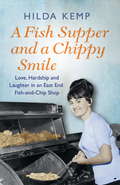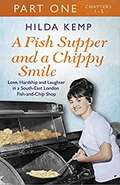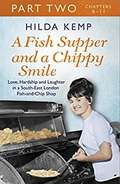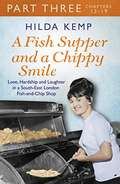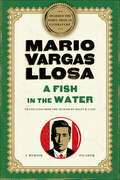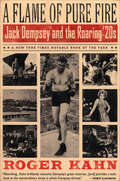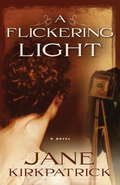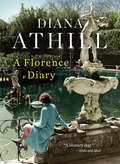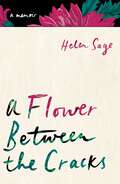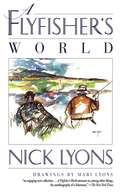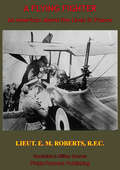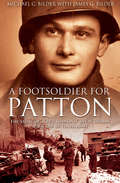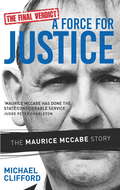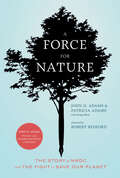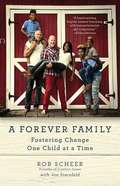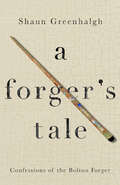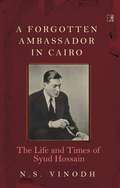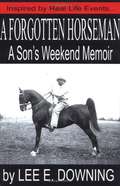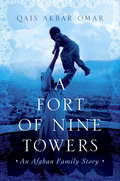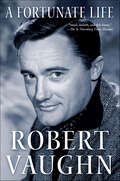- Table View
- List View
A Fish Supper and a Chippy Smile: Love, Hardship and Laughter in a South East London Fish-and-Chip Shop
by Cathryn Kemp Hilda Kemp'Oi, Hilda, the sign outside says you're frying today but I ain't seeing nothing done in ere!' The voice cut through my daydream, startling me into remembering where I was: standing in the fish-and-chip shop I worked in. We opened for business at 5 p.m. and already there was a queue of hungry customers on the cobbled street of London's East End. In 1950s and 60s Bermondsey, the fish-and-chip shop was at the centre of the community. And at the heart of the chippy itself was 'Hooray' Hilda Kemp, a spirited matriarch who dispensed fish suppers and an abundance of sympathy to a now-vanished world of East Enders. For 'Hooray' Hilda knew all to well what it was like to feel real, aching hunger. Growing up in the slums of 1920s south-east London, the daughter of a violent alcoholic who drank away his wages rather than put food on the table, she could spot when a customer was in need and would sneak them an extra big portion of chips, on the house. As Hilda works in the chippy six days a week - cutting the potatoes and frying the fish, yesterday's rag becoming today's dinner plate - she hears all the gossip from the close-knit community. There are rumours that the gang wars are hotting up: the Richardsons and the Krays are playing out their fights across south-east London. And the industrial strike is carrying on for a painfully long time for the mothers with many mouths to feed. At home, Hilda's children are latchkey kids, letting themselves in from school and helping themselves to whatever is in the larder until she gets in from her long, hard day at work. Despite tragedy striking her family, Hilda never complained of the loss of her daughter at a tragically young age, nor the tough upbringing she narrowly escaped. With a cast of colourful characters - dirty ragamuffins, struggling housewives, rough-diamond gang members - 'Hooray' Hilda's story is one of grit, romance, nostalgia and British endurance. Told to her granddaughter Cathryn, this memoir is the uplifting sequel to 'WE AIN'T GOT NO DRINK, PA' and is a testament to a woman who lived life to the full, who enjoyed laughter and loved fiercely - even though her heart was broken many times over.
A Fish Supper and a Chippy Smile: Part 1
by Cathryn Kemp Hilda KempA FISH SUPPER AND A CHIPPY SMILE can either be read as full-length eBook or in 3 serialised eBook-only parts.This is PART 1 OF 3.'Oi, Hilda, the sign outside says you're frying today but I ain't seeing nothing done in ere!' The voice cut through my daydream, startling me into remembering where I was: standing in the fish-and-chip shop I worked in. We opened for business at 5 p.m. and already there was a queue of hungry customers on the cobbled street of London's East End. In 1950s and 60s Bermondsey, the fish-and-chip shop was at the centre of the community. And at the heart of the chippy itself was 'Hooray' Hilda Kemp, a spirited matriarch who dispensed fish suppers and an abundance of sympathy to a now-vanished world of East Enders. For 'Hooray' Hilda knew all to well what it was like to feel real, aching hunger. Growing up in the slums of 1920s south-east London, the daughter of a violent alcoholic who drank away his wages rather than put food on the table, she could spot when a customer was in need and would sneak them an extra big portion of chips, on the house. As Hilda works in the chippy six days a week - cutting the potatoes and frying the fish, yesterday's rag becoming today's dinner plate - she hears all the gossip from the close-knit community. There are rumours that the gang wars are hotting up: the Richardsons and the Krays are playing out their fights across south-east London. And the industrial strike is carrying on for a painfully long time for the mothers with many mouths to feed. At home, Hilda's children are latchkey kids, letting themselves in from school and helping themselves to whatever is in the larder until she gets in from her long, hard day at work. Despite tragedy striking her family, Hilda never complained of the loss of her daughter at a tragically young age, nor the tough upbringing she narrowly escaped. With a cast of colourful characters - dirty ragamuffins, struggling housewives, rough-diamond gang members - 'Hooray' Hilda's story is one of grit, romance, nostalgia and British endurance. Told to her granddaughter Cathryn, this memoir is the uplifting sequel to 'WE AIN'T GOT NO DRINK, PA' and is a testament to a woman who lived life to the full, who enjoyed laughter and loved fiercely - even though her heart was broken many times over.
A Fish Supper and a Chippy Smile: Part 1
by Cathryn Kemp Hilda KempA FISH SUPPER AND A CHIPPY SMILE can either be read as full-length eBook or in 3 serialised eBook-only parts.This is PART 1 OF 3.'Oi, Hilda, the sign outside says you're frying today but I ain't seeing nothing done in ere!' The voice cut through my daydream, startling me into remembering where I was: standing in the fish-and-chip shop I worked in. We opened for business at 5 p.m. and already there was a queue of hungry customers on the cobbled street of London's East End. In 1950s and 60s Bermondsey, the fish-and-chip shop was at the centre of the community. And at the heart of the chippy itself was 'Hooray' Hilda Kemp, a spirited matriarch who dispensed fish suppers and an abundance of sympathy to a now-vanished world of East Enders. For 'Hooray' Hilda knew all to well what it was like to feel real, aching hunger. Growing up in the slums of 1920s south-east London, the daughter of a violent alcoholic who drank away his wages rather than put food on the table, she could spot when a customer was in need and would sneak them an extra big portion of chips, on the house. As Hilda works in the chippy six days a week - cutting the potatoes and frying the fish, yesterday's rag becoming today's dinner plate - she hears all the gossip from the close-knit community. There are rumours that the gang wars are hotting up: the Richardsons and the Krays are playing out their fights across south-east London. And the industrial strike is carrying on for a painfully long time for the mothers with many mouths to feed. At home, Hilda's children are latchkey kids, letting themselves in from school and helping themselves to whatever is in the larder until she gets in from her long, hard day at work. Despite tragedy striking her family, Hilda never complained of the loss of her daughter at a tragically young age, nor the tough upbringing she narrowly escaped. With a cast of colourful characters - dirty ragamuffins, struggling housewives, rough-diamond gang members - 'Hooray' Hilda's story is one of grit, romance, nostalgia and British endurance. Told to her granddaughter Cathryn, this memoir is the uplifting sequel to 'WE AIN'T GOT NO DRINK, PA' and is a testament to a woman who lived life to the full, who enjoyed laughter and loved fiercely - even though her heart was broken many times over.
A Fish Supper and a Chippy Smile: Part 2
by Cathryn Kemp Hilda KempA FISH SUPPER AND A CHIPPY SMILE can either be read as full-length eBook or in 3 serialised eBook-only parts.This is PART 2 OF 3.'Oi, Hilda, the sign outside says you're frying today but I ain't seeing nothing done in ere!' The voice cut through my daydream, startling me into remembering where I was: standing in the fish-and-chip shop I worked in. We opened for business at 5 p.m. and already there was a queue of hungry customers on the cobbled street of London's East End. In 1950s and 60s Bermondsey, the fish-and-chip shop was at the centre of the community. And at the heart of the chippy itself was 'Hooray' Hilda Kemp, a spirited matriarch who dispensed fish suppers and an abundance of sympathy to a now-vanished world of East Enders. For 'Hooray' Hilda knew all to well what it was like to feel real, aching hunger. Growing up in the slums of 1920s south-east London, the daughter of a violent alcoholic who drank away his wages rather than put food on the table, she could spot when a customer was in need and would sneak them an extra big portion of chips, on the house. As Hilda works in the chippy six days a week - cutting the potatoes and frying the fish, yesterday's rag becoming today's dinner plate - she hears all the gossip from the close-knit community. There are rumours that the gang wars are hotting up: the Richardsons and the Krays are playing out their fights across south-east London. And the industrial strike is carrying on for a painfully long time for the mothers with many mouths to feed. At home, Hilda's children are latchkey kids, letting themselves in from school and helping themselves to whatever is in the larder until she gets in from her long, hard day at work. Despite tragedy striking her family, Hilda never complained of the loss of her daughter at a tragically young age, nor the tough upbringing she narrowly escaped. With a cast of colourful characters - dirty ragamuffins, struggling housewives, rough-diamond gang members - 'Hooray' Hilda's story is one of grit, romance, nostalgia and British endurance. Told to her granddaughter Cathryn, this memoir is the uplifting sequel to 'WE AIN'T GOT NO DRINK, PA' and is a testament to a woman who lived life to the full, who enjoyed laughter and loved fiercely - even though her heart was broken many times over.
A Fish Supper and a Chippy Smile: Part 2
by Cathryn Kemp Hilda KempA FISH SUPPER AND A CHIPPY SMILE can either be read as full-length eBook or in 3 serialised eBook-only parts.This is PART 2 OF 3.'Oi, Hilda, the sign outside says you're frying today but I ain't seeing nothing done in ere!' The voice cut through my daydream, startling me into remembering where I was: standing in the fish-and-chip shop I worked in. We opened for business at 5 p.m. and already there was a queue of hungry customers on the cobbled street of London's East End. In 1950s and 60s Bermondsey, the fish-and-chip shop was at the centre of the community. And at the heart of the chippy itself was 'Hooray' Hilda Kemp, a spirited matriarch who dispensed fish suppers and an abundance of sympathy to a now-vanished world of East Enders. For 'Hooray' Hilda knew all to well what it was like to feel real, aching hunger. Growing up in the slums of 1920s south-east London, the daughter of a violent alcoholic who drank away his wages rather than put food on the table, she could spot when a customer was in need and would sneak them an extra big portion of chips, on the house. As Hilda works in the chippy six days a week - cutting the potatoes and frying the fish, yesterday's rag becoming today's dinner plate - she hears all the gossip from the close-knit community. There are rumours that the gang wars are hotting up: the Richardsons and the Krays are playing out their fights across south-east London. And the industrial strike is carrying on for a painfully long time for the mothers with many mouths to feed. At home, Hilda's children are latchkey kids, letting themselves in from school and helping themselves to whatever is in the larder until she gets in from her long, hard day at work. Despite tragedy striking her family, Hilda never complained of the loss of her daughter at a tragically young age, nor the tough upbringing she narrowly escaped. With a cast of colourful characters - dirty ragamuffins, struggling housewives, rough-diamond gang members - 'Hooray' Hilda's story is one of grit, romance, nostalgia and British endurance. Told to her granddaughter Cathryn, this memoir is the uplifting sequel to 'WE AIN'T GOT NO DRINK, PA' and is a testament to a woman who lived life to the full, who enjoyed laughter and loved fiercely - even though her heart was broken many times over.
A Fish Supper and a Chippy Smile: Part 3
by Cathryn Kemp Hilda KempA FISH SUPPER AND A CHIPPY SMILE can either be read as full-length eBook or in 3 serialised eBook-only parts.This is PART 3 OF 3.'Oi, Hilda, the sign outside says you're frying today but I ain't seeing nothing done in ere!' The voice cut through my daydream, startling me into remembering where I was: standing in the fish-and-chip shop I worked in. We opened for business at 5 p.m. and already there was a queue of hungry customers on the cobbled street of London's East End. In 1950s and 60s Bermondsey, the fish-and-chip shop was at the centre of the community. And at the heart of the chippy itself was 'Hooray' Hilda Kemp, a spirited matriarch who dispensed fish suppers and an abundance of sympathy to a now-vanished world of East Enders. For 'Hooray' Hilda knew all to well what it was like to feel real, aching hunger. Growing up in the slums of 1920s south-east London, the daughter of a violent alcoholic who drank away his wages rather than put food on the table, she could spot when a customer was in need and would sneak them an extra big portion of chips, on the house. As Hilda works in the chippy six days a week - cutting the potatoes and frying the fish, yesterday's rag becoming today's dinner plate - she hears all the gossip from the close-knit community. There are rumours that the gang wars are hotting up: the Richardsons and the Krays are playing out their fights across south-east London. And the industrial strike is carrying on for a painfully long time for the mothers with many mouths to feed. At home, Hilda's children are latchkey kids, letting themselves in from school and helping themselves to whatever is in the larder until she gets in from her long, hard day at work. Despite tragedy striking her family, Hilda never complained of the loss of her daughter at a tragically young age, nor the tough upbringing she narrowly escaped. With a cast of colourful characters - dirty ragamuffins, struggling housewives, rough-diamond gang members - 'Hooray' Hilda's story is one of grit, romance, nostalgia and British endurance. Told to her granddaughter Cathryn, this memoir is the uplifting sequel to 'WE AIN'T GOT NO DRINK, PA' and is a testament to a woman who lived life to the full, who enjoyed laughter and loved fiercely - even though her heart was broken many times over.
A Fish Supper and a Chippy Smile: Part 3
by Cathryn Kemp Hilda KempA FISH SUPPER AND A CHIPPY SMILE can either be read as full-length eBook or in 3 serialised eBook-only parts.This is PART 3 OF 3.'Oi, Hilda, the sign outside says you're frying today but I ain't seeing nothing done in ere!' The voice cut through my daydream, startling me into remembering where I was: standing in the fish-and-chip shop I worked in. We opened for business at 5 p.m. and already there was a queue of hungry customers on the cobbled street of London's East End. In 1950s and 60s Bermondsey, the fish-and-chip shop was at the centre of the community. And at the heart of the chippy itself was 'Hooray' Hilda Kemp, a spirited matriarch who dispensed fish suppers and an abundance of sympathy to a now-vanished world of East Enders. For 'Hooray' Hilda knew all to well what it was like to feel real, aching hunger. Growing up in the slums of 1920s south-east London, the daughter of a violent alcoholic who drank away his wages rather than put food on the table, she could spot when a customer was in need and would sneak them an extra big portion of chips, on the house. As Hilda works in the chippy six days a week - cutting the potatoes and frying the fish, yesterday's rag becoming today's dinner plate - she hears all the gossip from the close-knit community. There are rumours that the gang wars are hotting up: the Richardsons and the Krays are playing out their fights across south-east London. And the industrial strike is carrying on for a painfully long time for the mothers with many mouths to feed. At home, Hilda's children are latchkey kids, letting themselves in from school and helping themselves to whatever is in the larder until she gets in from her long, hard day at work. Despite tragedy striking her family, Hilda never complained of the loss of her daughter at a tragically young age, nor the tough upbringing she narrowly escaped. With a cast of colourful characters - dirty ragamuffins, struggling housewives, rough-diamond gang members - 'Hooray' Hilda's story is one of grit, romance, nostalgia and British endurance. Told to her granddaughter Cathryn, this memoir is the uplifting sequel to 'WE AIN'T GOT NO DRINK, PA' and is a testament to a woman who lived life to the full, who enjoyed laughter and loved fiercely - even though her heart was broken many times over.
A Fish in the Water: A Memoir
by Mario Vargas LlosaIn this literary memoir, the Nobel Prize–winning author and Peruvian politician shares “a convincing self-portrait . . . an often funny and cautionary tale” (Time).In 1990, Mario Vargas Llosa decided to run for the presidency of his native Peru. He campaigned on a platform of economic reform and stringent counterterrorism against the far-left gorilla group, Sendero Luminoso. His failed campaign against Alberto Fujimori generated international headlines, transforming the renowned author into a politician of world stature.A Fish in the Water is Vargas Llosa’s personal account of his life as seen through the lens of his time as a candidate. He evokes the experiences that gave rise to his fiction, while—in parallel—he describes the social, literary, and political influences that led him to enter the political arena as a crusader for democracy and a free-market economy.
A Flame of Pure Fire: Jack Dempsey and the Roaring '20s
by Roger KahnJack Dempsey was perfectly suited to the time in which he fought, the time when the United States first felt the throb of its own overwhelming power. For eight years and two months after World War I, Dempsey, with his fierce good looks and matchless dedication to the kill, was heavyweight champion of the world. A Flame of Pure Fire is the extraordinary story of a man and a country growing to maturity in a blaze of strength and exuberance that nearly burned them to ash. Hobo, roughneck, fighter, lover, millionaire, movie star, and, finally, a gentleman of rare generosity and sincerity, Dempsey embodied an America grappling with the confusing demands of preeminence. Dempsey lived a life that touched every part of the American experience in the first half of the twentieth century. Roger Kahn, one of our preeminent writers about the human side of sport, has found in Dempsey a subject that matches his own manifold talents. A friend of Dempsey's and an insightful observer of the ways in which sport can measure a society's evolution, Kahn reaches a new and exciting stage in his acclaimed career with this book. In the story of a man John Lardner called "a flame of pure fire, at last a hero," Roger Kahn finds the heart of America.
A Flickering Light (Portraits of the Heart #1)
by Jane KirkpatrickReturning to her Midwest roots, award-winning author Jane Kirkpatrick draws a page from her grandmother's photo album to capture the interplay between shadow and light, temptation and faith that marks a woman's pursuit of her dreams.She took exquisite photographs, but her heart was the true image exposed. Fifteen-year-old Jessie Ann Gaebele loves nothing more than capturing a gorgeous Minnesota landscape when the sunlight casts its most mesmerizing shadows. So when F.J. Bauer hires her in 1907 to assist in his studio and darkroom, her dreams for a career in photography appear to find root in reality. With the infamous hazards of the explosive powder used for lighting and the toxic darkroom chemicals, photography is considered a man' s profession. Yet Jessie shows remarkable talent in both the artistry and business of running a studio. She proves less skillful, however, at managing her growing attraction to the very married Mr. Bauer.This luminous coming-of-age tale deftly exposes the intricate shadows that play across every dream worth pursuing-and the irresistible light that beckons the dreamer on.From the Trade Paperback edition.
A Florence Diary
by Diana AthillA recently discovered gem from the bestselling author of Somewhere Towards the End, A Florence Diary is the charming and vivacious account of Athill’s travels to post-war Florence.In August 1947, Diana Athill travelled to Florence by the Golden Arrow train for a two-week holiday with her cousin Pen. In this playful diary of that trip, delightfully illustrated with photographs of the period, Athill recorded her observations and adventures — eating with (and paid for by) the hopeful men they meet on their travels, admiring architectural sights, sampling delicious pastries, eking out their budget, and getting into scrapes.Written with an arresting immediacy and infused with an exhilarating joie de vivre, A Florence Diary is a bright, colourful evocation of a time long lost and a vibrant portrait of a city that will be deliciously familiar to any contemporary traveller.
A Flower Between the Crack
by Helen SageIt's every parent's nightmare. One ordinary evening, Helen's twenty-two-year-old daughter Jayne is involved in a catastrophic car accident. Lying in a coma, her young life in the balance, Helen begins penning tender letters to Jayne, trying to make sense of the tragedy. When Jayne finally wakes, she can't talk or walk. Her life, and the lives of her family, will never be the same again.A Flower Between the Cracks is an extraordinarily powerful account of a mother's love and a daughter's immeasurable courage. It is a story of hope and survival, laced with surprising humour. Never has a memoir spoken of the complexity of caring for a disabled loved one with such grace and candour. This is a book for all Australians - reminding us of the profound joys to be found in each day.
A Flyfisher's World
by Nick Lyons Mari LyonsThis ample selection of articles and essays by one of America's most popular writers about fly-fishing begins with a moment on Michigan's Au Sable River--the exact moment when the author lost his heart to fly-fishing. This collection chronicles a fishing life punctuated by a revealing trip with one of his grown sons and mellow reflections from a hospital bed.This is the broadest of Nick Lyons's books, with sections on tarpon and pike fishing in the Marquesas and in France, bass bugging on a small Connecticut pond, and trout fishing on unnamed creeks and blue-ribbon western rivers, as well as reflections on such aspects of the sport as the flies that are the underpinning of it all, the pursuit of records, the odd characters he's met along the way, and the increasing challenge of crowds who pursue this ever-popular sport.By turns canny, hilarious, inquiring, and philosophic, A Flyfisher's World is an impressive addition to Nick Lyons's important body of writing about fly-fishing.
A Flying Fighter: An American Above The Lines In France
by E. M. Roberts"An American eagle with British wingsReaders interested in the personal experiences of the resolute and brave young men who ventured into the air to fight the first aerial combats will discover much to reward them in this book. The author joined the R. F. C in 1914 to fight Germany following its invasion of Belgium and advance into France at the beginning of the First World War. However, he was, in fact an American much taken with the idea of adventure as well as the righting of wrongs. Roberts' first experience of air fighting for the British flying corps was as an observer manning a machine gun and his descriptions of battling enemy aircraft and his accounts of his various 'kills' make gripping reading. Eventually he graduated to the pilot's cockpit where he became an accomplished exponent of the dogfight; this did not come without some cost, Roberts lost many comrades and was seriously wounded himself. This account is highly recommended since it brings to life through many anecdotes the first hand experiences of one who was there. This book is one of a very small number by early military aviators and will be a valuable addition to the library of anyone with an interest in the subject."-Leonaur Print Edition
A Foot Soldier for Patton: The Story of a "Red Diamond" Infantryman with the US Third Army
by James G. Bilder Michael C. BilderThis candid memoir of a GI serving under Gen. Patton offers a rare glimpse into the realities of life and combat in Europe during WWII. Though Gen. Patton&’s army is famous for dashing armored attacks, some of the most intensive fighting of World War II was done by Patton&’s infantry—the foot sloggers who were deployed to reduce enemy strong points. This candid account of the US infantry in the European theater takes the reader from the beaches of Normandy to the conquest of Germany—all through the eyes of an infantryman who had the unique perspective of speaking the enemy&’s language. A fluent German speaker, Michael Bilder was called upon for interrogations and other special duties. As a combat lifeguard, he also played a key role in successive river crossings. Here, Bilder relates his experiences of infantry life, from German snipers to intoxicated Frenchwomen, to the often morbid humor of combat. He also describes the Battle of Metz in all its horror, as well as the 5th Infantry&’s drive into the Bulge, where they faced their first winter battle against enemy veterans of Russia.
A Force for Justice: The Maurice McCabe Story
by Michael CliffordWhen, in 2008, Sergeant Maurice McCabe complained of shoddy investigations into serious crime in County Cavan, nothing could have prepared him for what was in store.A career garda, McCabe never set out to be a whistleblower. However, over the following eight years, he exposed gross incompetence and corruption within An Garda Siochána. It ranged from a violent criminal being free to murder, to country-wide corruption in the policing of road safety.Along the way he paid a terrible price, enduring vilification, bullying and harassment by forces who wanted to silence him and his inconvenient truths. Worse still were the rumours of an extreme nature, which had a devastating effect on his whole family.McCabe's actions ultimately led to some of the biggest reforms of An Garda Siochána since the foundation of the state, caused major political upheaval, and culminated in a Tribunal established in 2017, to examine whether there had been a smear campaign against him within the force.A Force For Justice reveals the story behind the scenes, of one man struggling to survive in the most challenging of circumstances. It is a dramatic account of a garda sergeant's journey from a rural outpost into the heart of the Irish political and legal system.
A Force for Justice: The Maurice McCabe Story
by Michael CliffordTHE UPDATED BESTSELLERSergeant Maurice McCabe never set out to be a whistleblower. When, in 2008, he complained of shoddy investigations into serious crime in County Cavan, nothing could have prepared him for what was in store.For exposing gross incompetence and corruption within An Garda Síochána, he endured vilification, bullying and harassment by forces who wanted to bury him and his inconvenient truths. Worse still were the vicious rumours and falsehoods, which had a devastating effect on his whole family.Their painful journey to vindication was only completed in October 2018, with the publication of the Disclosures Tribunal report, which revealed how ex-Garda Commissioner Martin Callinan and Superintendent Dave Taylor had conducted a campaign of 'calumny' against 'an officer of exemplary character'. From the award-winning journalist who first broke the story, A Force for Justice is the definitive account of the greatest scandal ever to emerge from the Irish police force, and the personal price paid by Maurice McCabe in pursuit of his duty to serve the state.
A Force for Nature: The Story of NRDC and the Fight to Save Our Planet
by John H. Adams Patricia Adams Air Vice Marshal George BlackThe pioneering environmental activist recounts his decades-long fight for our planet through the NDRC—with a foreword by Robert Redford.In 1970, John H. Adams was fed up with the levels of pollution in New York City. How could he raise children in a place where layers of soot covered the windows? Working as a lawyer for the U.S. Attorney’s office, he and fellow lawyers teamed up to form Natural Resources Defense Council, a grassroots environmental advocacy group. Over the years, NDRC has grown into an international powerhouse with 1.2 million members and a staff of scientists and lawyers whose mission is to safeguard the planet. This inspiring memoir tells the story of the NRDC and the environmental movement it sparked.
A Foreign Devil in China: The Story of Dr. L. Nelson Bell
by John PollockIn Dr. Bell's early days in China, people from other countries were usually referred to as "Foreign Devils" (and not without reason, considering the way China was often treated by other countries)--hence the title of this book. But for tens of thousands of grateful patients, Dr. Bell was "Chong Ai Hua", or "The Bell Who Is Lover of the Chinese People." His genuine love for the Chinese people, his sacrificial service, and his respect for their culture caused him to be looked upon as a true friend and colleague. It is significant that at the conclusion of World War II he was one of the first missionaries urged to return to China by the people who knew him best. Nothing would have gladdened him more than the new era of respect and friendship which has dawned in recent years between China and other countries, and the promise it holds of even greater fruit for the gospel of Jesus Christ in that ancient land.
A Forever Family: Fostering Change One Child at a Time
by Jon Sternfeld Rob ScheerIn the tradition of The Promise of a Pencil and Kisses from Katie comes an inspirational memoir by the founder of Comfort Cases about his turbulent childhood in the foster care system and the countless obstacles and discrimination he endured in adopting his four children.Rob Scheer never thought that he would be living the life he is now. He’s happily married to his partner and love of his life, he’s the father of four beautiful children, and he’s the founder of an organization that makes life better for thousands of children in the foster care system. But life wasn’t always like this. Growing up in an abusive household before his placement in foster care, Rob had all the odds stacked against him. Kicked out of his foster family’s home within weeks after turning eighteen—with a year left of high school to go—he had to resort to sleeping in his car and in public bathrooms. He suffered from drug addiction and battled with depression, never knowing when his next meal would be or where he would sleep at night. But by true perseverance, he was able to find his own path and achieve his wildest dreams. Poignant, gripping and inspiring, Rob’s story provides a glimpse into what it’s like to grow up in the foster care system, and sheds necessary light on the children who are often treated without dignity. Both a timely call to action and a courageous and candid account of life in the foster care system, A Forever Family ultimately leaves you with one message: one person can make a difference.
A Forger's Tale: Confessions of the Bolton Forger
by Shaun GreenhalghIn 2007, Bolton Crown Court sentenced Shaun Greenhalgh to four years and eight months in prison for the crime of producing artistic forgeries. Working out of a shed in his parents' garden, Greenhalgh had successfully fooled some of the world's greatest museums. During the court case, the breadth of his forgeries shocked the art world and tantalised the media. What no one realised was how much more of the story there was to tell.Written in prison, A Forger's Tale details Shaun's notorious career and the extraordinary circumstances that led to it. From Leonardo drawings to L.S. Lowry paintings, from busts of American presidents to Anglo-Saxon brooches, from cutting-edge Modernism to the ancient art of the Stone Age, Greenhalgh could - and did - copy it all. Told with great wit and charm, this is the definitive account of Britain's most successful and infamous forger, a man whose love for art saturates every page of this extraordinary memoir.
A Forgotten Ambassador in Cairo: The Life and Times of Syud Hossain
by Mr. N.S. VinodhAmongst the multitude of tombs in the City of the Dead in Cairo, there lies buried a lone Indian — a scholar, writer, debonair statesman and a leader of the freedom movement. Who is he? How did he get there? For a man who used both the lectern and the pen to devastating effect during the Indian Independence movement led by the likes of Gandhi and Nehru, little is known of Syud Hossain. Born to an aristocratic family in Calcutta, he forayed into journalism early in life and became the editor of Motilal Nehru&’s nationalist newspaper, The Independent. After a brief elopement with Motilal&’s daughter, Sarup (aka Vijaya Lakshmi Pandit), Hossain, under immense pressure from Nehru and Gandhi, annulled the marriage and stayed away from the country. Thus began several years of exile. Eventually, he landed in the United States. Flitting from one place to another, making homes of hotel rooms, he imparted Gandhi&’s message across the country. He fought for India&’s cause from afar, garnering support in the United States and decrying British oppression. Syud Hossain inspired and irked in equal measure; with every speech he delivered and every editorial he penned, he sent a shiver down the spine of the colonial ruler. In addition, Hossain took on the fight for Indian immigrant rights in the United States, one that successfully culminated in President Truman signing the Luce-Celler Bill into an Act in 1946. Hossain returned to India to witness the triumph of her independence as well as the tragedy of Gandhi&’s assassination. Thereafter appointed India&’s first ambassador to Egypt, he died while in service and was laid to rest in Cairo.A Forgotten Ambassador in Cairo offers an illuminating narrative of Hossain&’s life interspersed with historical details that landscapes a vivid political picture of that era. Through primary sources that include Hossain&’s private papers, British Intelligence files, and contemporary correspondence and newspapers, N.S. Vinodh brilliantly brings to life a man who has been relegated far too long to the shadows of time.
A Forgotten Horseman: A Son's Weekend Memoir
by Lee E. DowningAs an adult, the author looks back and tells the story of a weekend he spent at a horse show with his father. His father was an African-American horse trainer of Saddlebred show horses in the 1950's. The author tells the story of his father and other African-American trainers of the day through his own eyes as an observer just entering his teens.
A Fort of Nine Towers
by Qais Akbar OmarThe surprising, stunning book that took the publishing world by storm: a coming-of-age memoir of unimaginable perils and unexpected joys, steeped in the rhythms of folk tales and poetry, that is as unforgettable as it is rare--a treasure for readers. Qais Akbar Omar was born in Kabul in a time of relative peace. Until he was 7, he lived with his father, a high school physics teacher, and mother, a bank manager, in the spacious, garden-filled compound his grandfather had built. Noisy with the laughter of his cousins (with whom they lived in the typical Afghan style), fragrant with the scent of roses and apple blossoms, and rich in shady, tucked-away spots where Qais and his grandfather sat and read, home was the idyllic centre of their quiet, comfortable life. But in the wake of the Russian withdrawal and the bloody civil conflict that erupted, his family was forced to flee and take refuge in the legendary Fort of Nine Towers, a centuries-old palace in the hills on the far side of Kabul. On a perilous trip home, Omar and his father were kidnapped, narrowly escaping, and the family fled again, his parents leading their 6 children on a remarkable, sometimes wondrous journey. Hiding inside the famous giant Bamiyan Buddhas sculpture, and among Kurchi herders, Omar cobbles together an education, learning the beautiful art of carpet-weaving from a deaf mute girl, which will become the family's means of support. Against a backdrop of uncertainty, violence and absurdity, young Qais Omar weaves together a story--and a self--that is complex, colourful, and profound.
A Fortunate Life: Behind-the-scenes Stories From A Hollywood Legend
by Robert VaughnA remarkable and delightful memoir of a life spent in the uppermost circles of acting, politics, and the worldRobert Vaughn was born an actor. His family worked in the theater for generations, and he knew from the very start that he would join them. In his fifty-year career, Vaughn has made his mark in roles on stage, in film, and on television the world over. In A Fortunate Life, he describes some of the one-of-a-kind experiences he's enjoyed in his celebrated career. A Fortunate Life reveals the details of his early years in Hollywood, when he found himself appearing as often in the gossip magazines as on screen, and he recounts insider stories about such legendary figures as Judy Garland, Bette Davis, Charlton Heston, Oliver Reed, Jason Robards, Richard Harris, Yul Brynner, Elizabeth Taylor, and many more. Vaughn's work in The Young Philadelphians, The Magnificent Seven, Superman III, and many other films won kudos from critics and peers alike. Worldwide recognition came when he starred in the smash hit series The Man from U.N.C.L.E., and he vividly describes the extraordinary experience of becoming, quite suddenly, one of the world's brightest stars. Vaughn warmly recalls his romances with stars like Natalie Wood and his adventures with friends like Steve McQueen and James Coburn, but equally important was his involvement in the politics of the 1960s. The first actor to publicly speak out against the war in Vietnam, he served as national chairman of Dissenting Democrats, the largest antiwar organization in the U.S. He gave hundreds of speeches denouncing the war, debated William F. Buckley on national TV, and helped persuade his friend Robert F. Kennedy to run for president in 1968---only to see the race end in tragedy. With a wealth of moving, wonderfully entertaining and often jaw-dropping stories from the worlds of acting and politics, A Fortunate Life is a must-read for fans of Robert Vaughn and anyone who wants a glimpse behind the scenes of classic Hollywood.
